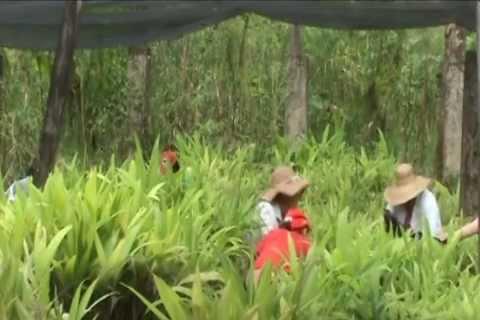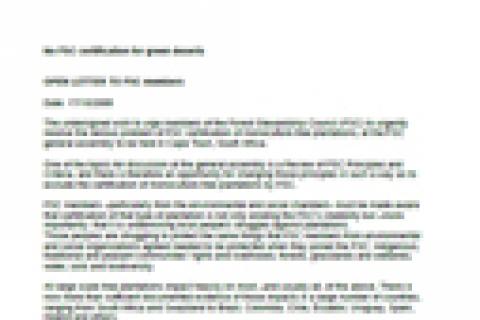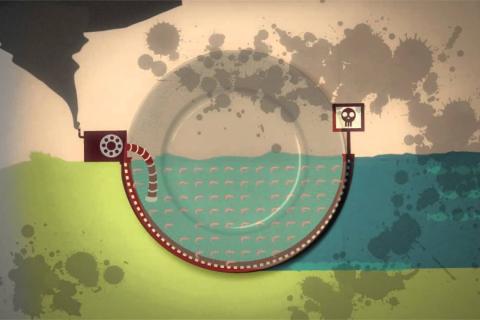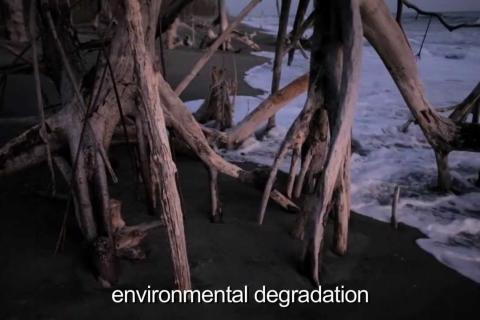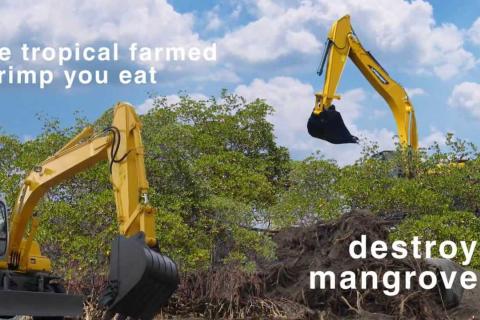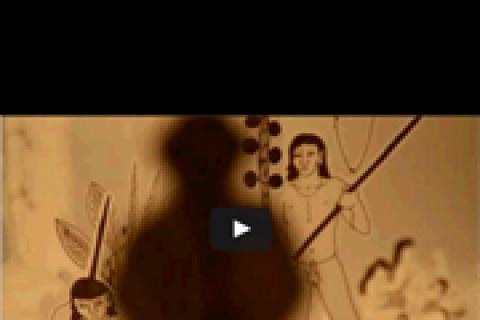Only available in Spanish -
Martes 17 de septiembre de 2013, 20.00 horas. Martes de Cine
Seminario permanente de la sustentabilidad invita:
Martes de cine (con conciencia)
En Kinoki este martes 17 de septiembre, a las 8:00pm:
En el marco del 21 de septiembre Día Mundial contra los Monocultivos de Árboles KINOKI y Otros Mundos Chiapas presentan:
DESIERTOS VERDES
Other information
Only available in Spanish -
Por Silvia Ribeiro* - Setiembre 2007.
La ola de los agrocombustibles sigue avanzando, no porque sea buena para el ambiente ni aporte solución alguna al cambio climático global - de hecho lo va a empeorar- sino porque las industrias más poderosas del planeta lo ven como una fuente de jugosas ganancias y encima consiguen que muchos gobiernos las apoyen con leyes y subsidios.
The Martín Pescador Centre, devoted to the marketing of products and the revaluation of the culture of the ancestral peoples of the mangrove ecosystem, is an initiative of the National Coordinating Committee for the Defence of the Mangrove Ecosystems (C CONDEM), comprising the people’s organizations that make up C CONDEM: grassroots organizations, fronts, federations and unions of communities devoted to artisanal fishing and gathering of products from the mangroves.
Mangroves, food sovereignty for coastal communities was the theme chosen this year for the International Day for the Defence of Mangrove Ecosystems (July 26) by Redmanglar International, which organized a variety of activities in Latin America between July 16 and July 26 to mark the occasion. During these days, representatives of various organizations joined with local communities to carry out mangrove reforestation work and to gather mangrove tree seeds .
The People’s Coalition for Fisheries Justice Indonesia (KIARA) celebrated the World Mangrove Day issuing a press release where it “urged the government to immediately conduct a revocation of the business license and or development projects (oil palm plantations, shrimp farms, coastal reclamation, and so on) that causes the loss of mangrove forests.
“Yo vivo en el bosque del manglar” - video by CESTA / Amigos de la Tierra El Salvador, available at (in Spanish with English subtitles)
Motion video - by Carly Hoover, MAP's featured artist to celebrate July 26 Mangrove Action Day, at http://player.vimeo.com/video/19264147 (only in English)
“Llora el Manglar”- by Leandro Velasco y PROYDE, ASPA y AZACÁN SERSO Castilla y León
http://www.cultureunplugged.com/documentary/watch-online/play/12853/Llora-el-manglar (in Spanish with English subtitles)
“Question your Shrimp” - Mangrove Action Proyect (MAP), at http://www.youtube.com/watch?v=_KVJbUHGAQg#at=15
WRM information sheets on GE tree research
First posted: 1 August 2008
Last update: August 2014
Tree species being manipulated:
eucalyptus
Aim of genetic manipulation (1,2)
Only available in Spanish -
Con este especial corto audiovisual, el CDES, a través de su Observatorio de Derechos Colectivos, pretende explicar cuáles son los peligros a los que se ven sometidos los Indígenas Asilados, Tagaeri y Taromenane, en su territorio de la selva Ecuatoriana. En estos críticos momentos, su vida depende en gran medida de que nosotros, la sociedad civil, seamos conscientes de los riesos que sufren e intentemos evitarlos. ¿Compartes el video?
